17 Fascinating Facts About the Jewish New Year
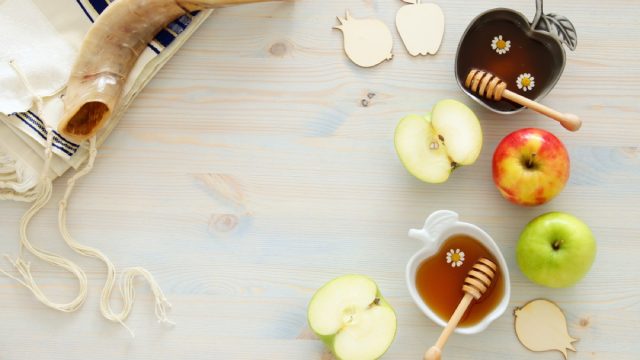
Every fall, Jews around the world gather in their homes and places of worship to celebrate Rosh Hashanah, the Jewish new year. A time of celebration and reflection, the two-day holiday is typically marked by a seder (a holiday meal), temple services, and the sounding of the shofar (an ancient instrument, typically made of a ram’s horn). It’s followed by the 10 Days of Awe and concludes with Yom Kippur, the Day of Atonement in Judaism. And while some of these details about the holiday may sound familiar to you, there’s plenty that even those who celebrate don’t know about the Jewish new year. So read on for some little-known facts about the holiest days in Judaism.
1
Rosh Hashanah doesn’t literally mean “New Year.”
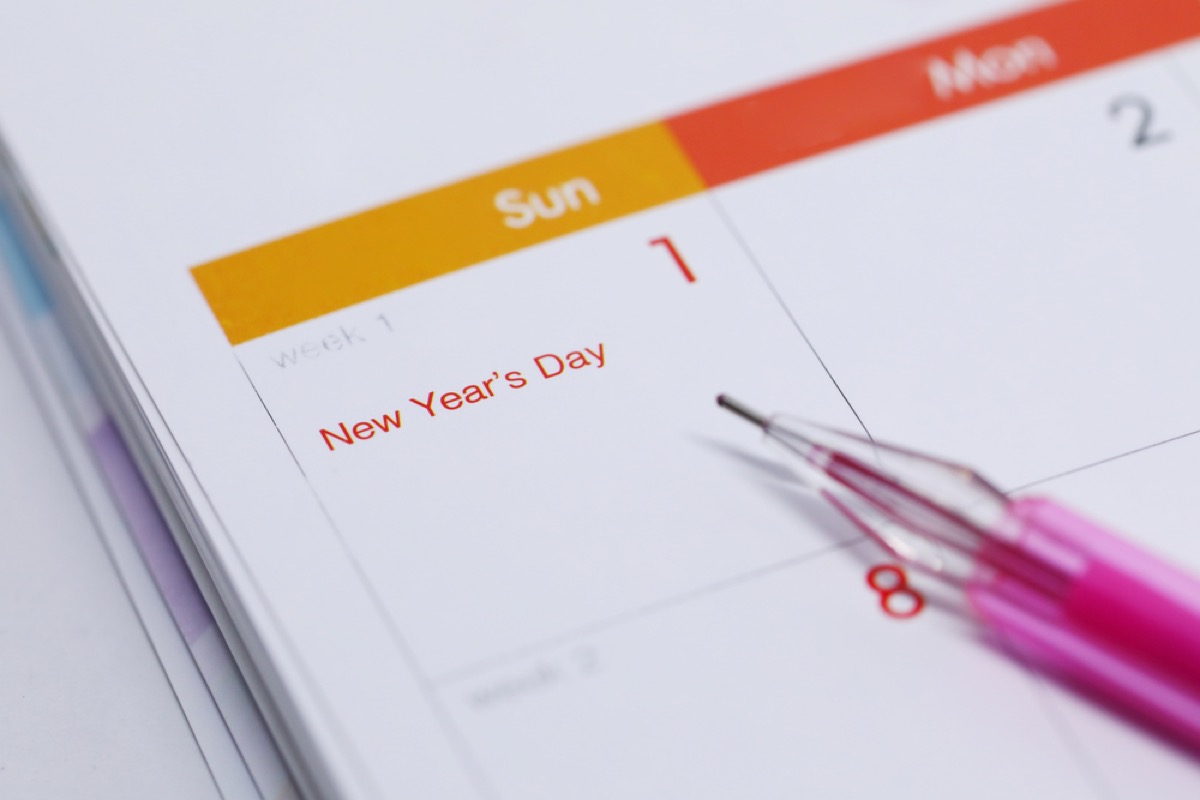
In Hebrew, the words “Rosh Hashanah” translate to “head of the year.” The word rosh can refer to either your anatomical head or a figurative leader head, ha translates to “the,” and shanah means year.
2
The holiday doesn’t take place on the same day each year.

Unlike many major holidays in other religions, Rosh Hashanah doesn’t have a fixed place on the Gregorian calendar. The holiday is celebrated on the first day of Tishrei, the seventh month of the ecclesiastical year. It typically falls sometime between September 5th and October 6th.
3
The words “Rosh Hashanah” don’t appear in the Torah.
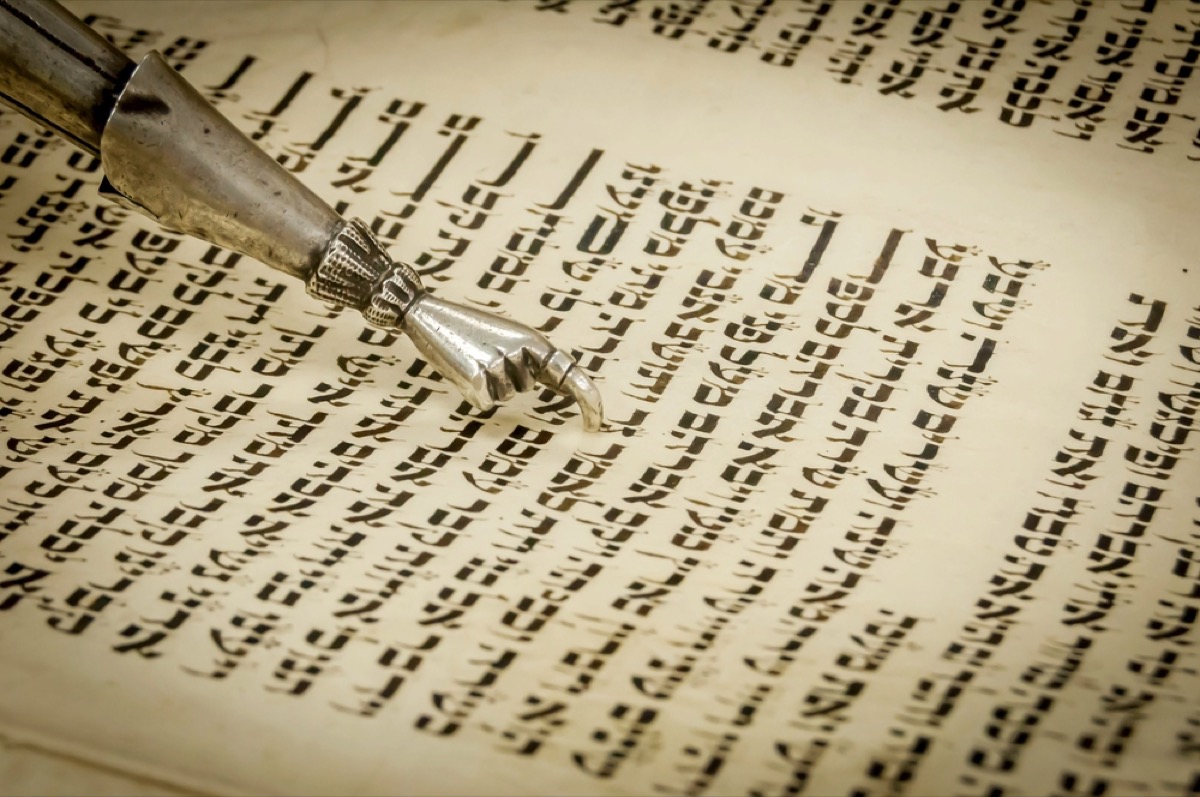
It would be fair to assume that, as one of Judaism’s highest holidays, Rosh Hashanah would be prominently featured in Jewish holy text, the Torah. But Rabbi Joshua Hess of Congregation Anshe Chesed in Linden, New Jersey, says that’s not the case. “The name for the holiday, Rosh Hashanah, does not even appear in the Bible,” he explains.
4
And the blowing of the shofar isn’t actually specifically mentioned in the Torah either.
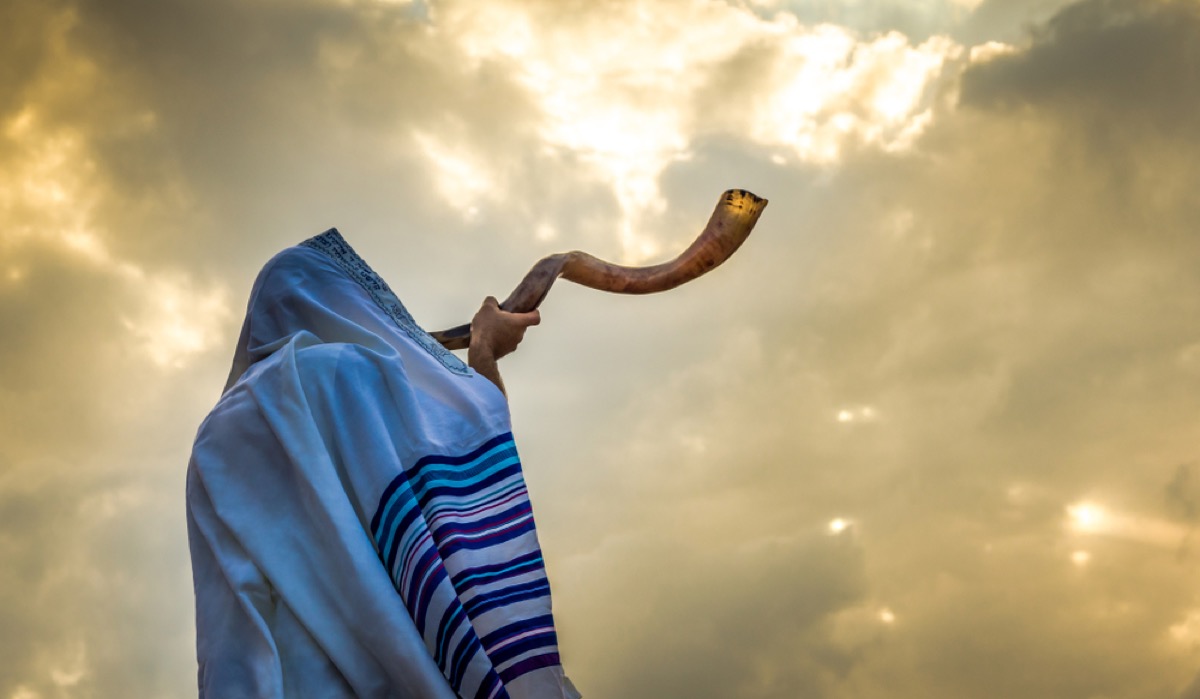
While the shofar—a hollowed-out horn of a kosher animal (typically a sheep or goat)—is blown during services on both days of Rosh Hashanah, that’s not specifically written in the Torah.
“The Bible doesn’t mention using a shofar on the holiday,” says Hess. Rather, the Torah refers to the holiday as “a day of trumpets or shouting.”
5
But if Rosh Hashanah coincides with Shabbat, the shofar isn’t used at all.

Since Rosh Hashanah doesn’t occur on the same date each year on the Gregorian calendar, the holiday coincides with Shabbat, the Jewish Sabbath, every few years. According to Chabad.org, when that happens, the shofar isn’t sounded.
6
Apples are eaten for sweetness in the coming year.
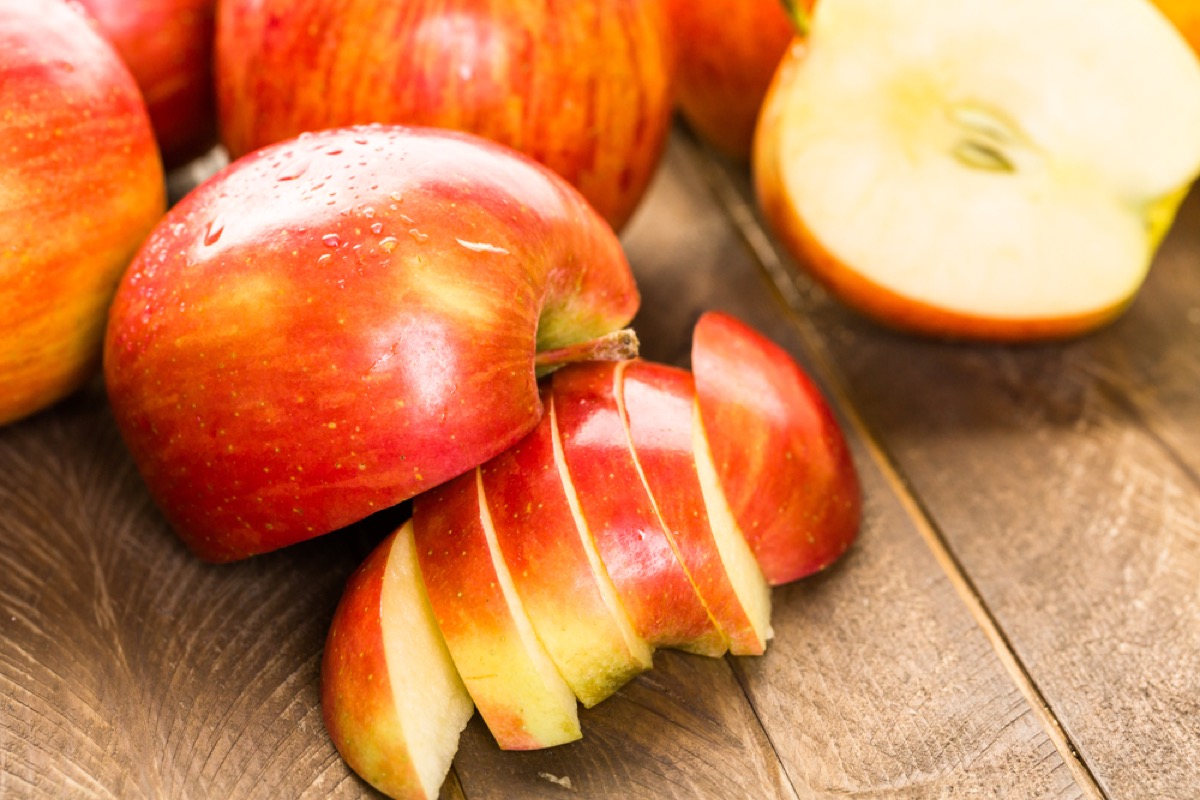
Eating apples dipped in honey on Rosh Hashanah has more meaning behind it than your average dessert. It’s part of Simanim, the Jewish tradition of eating foods with specific symbolic meanings, according to Hess. He explains that the apples and honey represent the sweetness that those celebrating the holiday hope the new year brings them.
7
And pomegranates are eaten as a symbol of the good deeds to come in the new year.
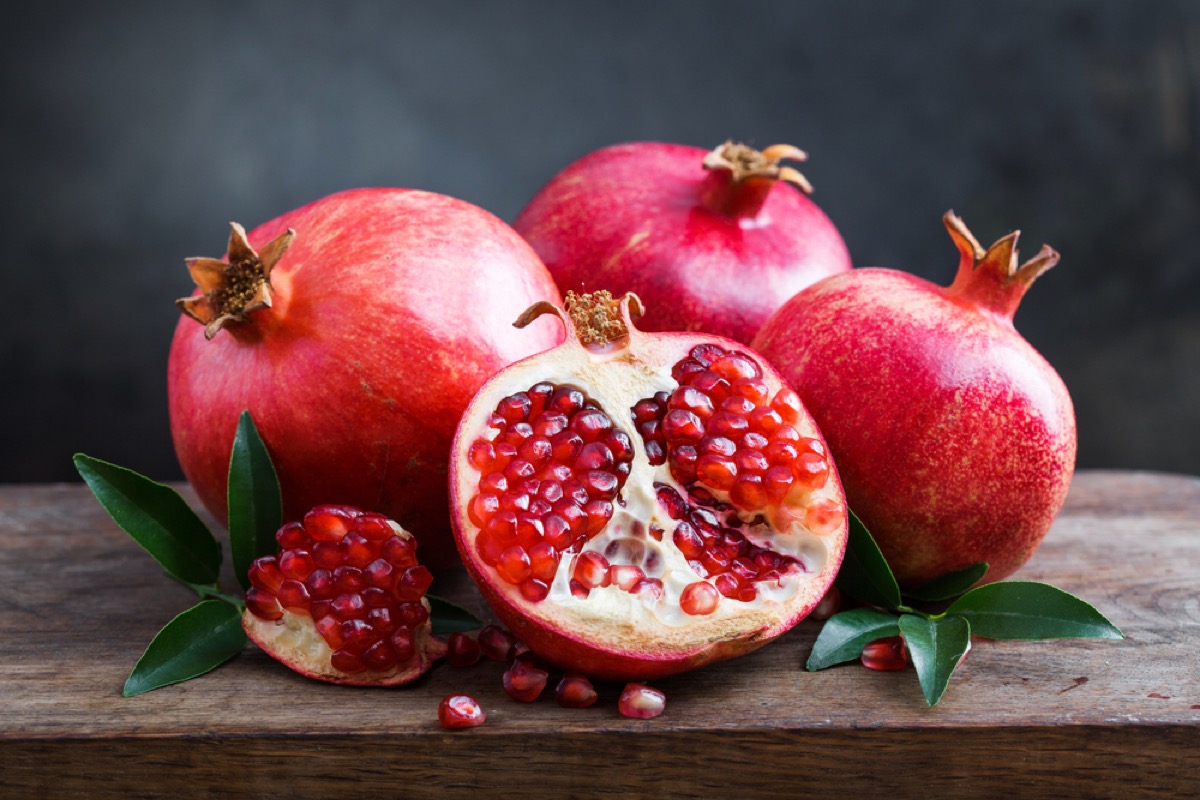
Similarly, those pomegranates on the seder table aren’t just there to give the meal some color. Hess notes that they’ve become an integral part of the Rosh Hashanah celebration “in the hope that we will perform as many good deeds as the seeds in the pomegranate” during the new year.
8
Eating carrots is thought to ward off evil on Rosh Hashanah.
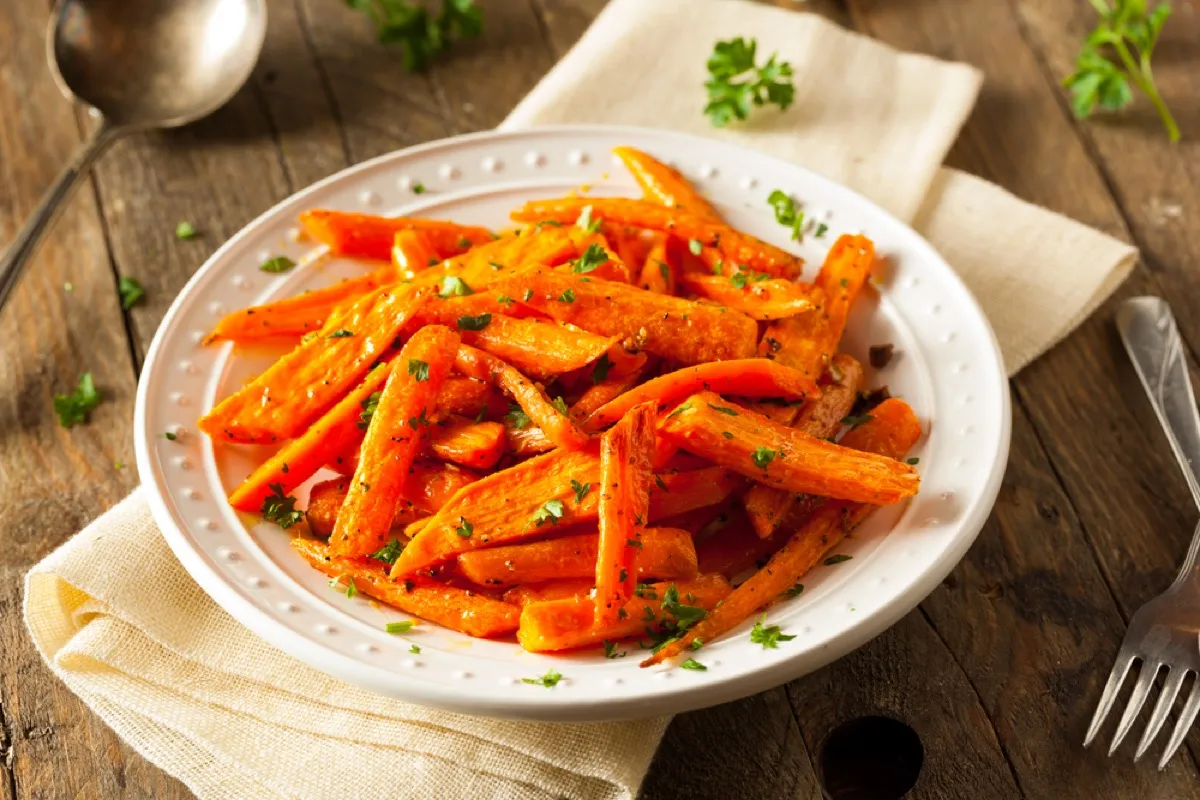
If you’ve ever wondered what carrots have to do with Rosh Hashanah, it’s all because of a little word play. As Hess explains, the Hebrew words for “carrots” (g’zarim) and “decree” (gezerah) are homonyms, and so those consuming the orange veggie are asking for any evil decrees to be cast aside in the new year. That’s why carrots end up in your tzimmes, a traditional Rosh Hashanah dish that also frequently contains sweet potatoes, prunes, and apples.
9
And they’re also believed to be a recipe for success.

The Yiddish word for carrot—mehren—also sounds like the Yiddish for more—mer—so those who eat carrots are thus expressing “the hope that we see an abundance of success [in the] upcoming year,” says Hess.
10
There’s more than one traditional greeting for Rosh Hashanah.

When you want to acknowledge someone observing Rosh Hashanah, “l’shanah tovah” (“for a good year”) is the greeting you’ll hear most often. However, there’s another one that can be uttered in its place: “Ketiva v’chatima tova,” which translates to “good writing and sealing.”
In Judaism, it is said that the 10 Days of Awe between Rosh Hashanah and Yom Kippur seal one’s fate for the year ahead. Jews believe that God writes the names of those who are righteous in the Book of Life and those who are wicked in the Book of Death, sealing these books on Yom Kippur. So, Hess notes, “what that greeting actually means is that God should write and seal your name for the good, in the Book of Life.”
11
Jews are encouraged to pray for others on Rosh Hashanah, too.
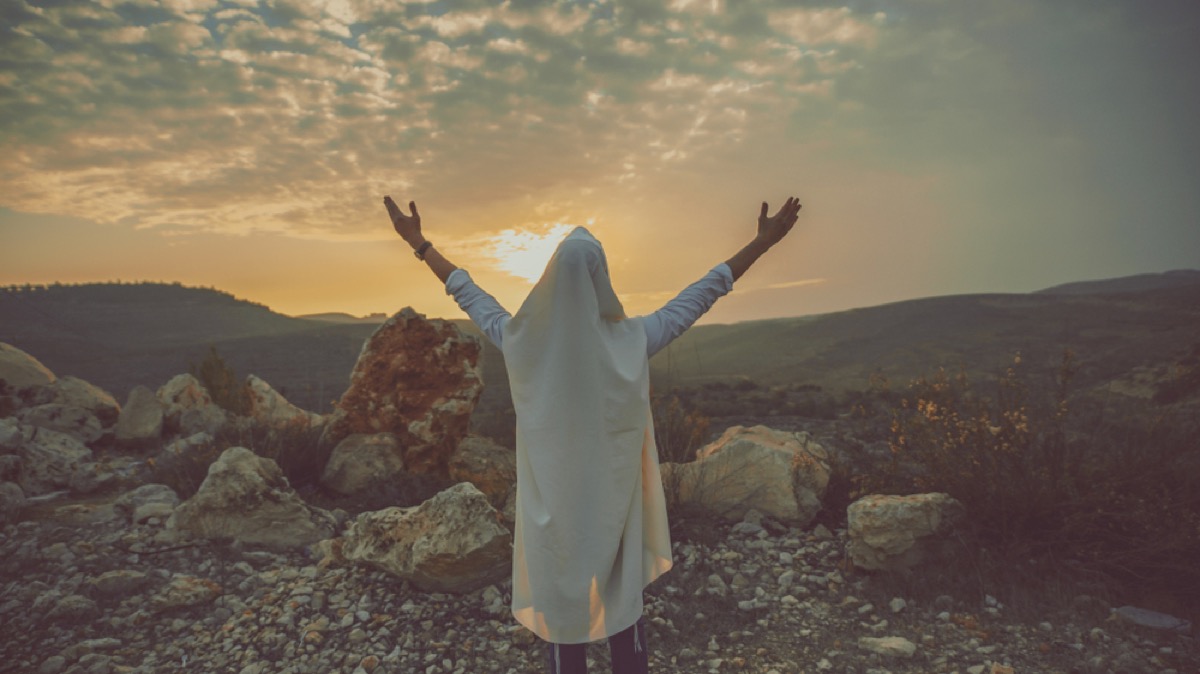
Though much of Rosh Hashanah is a merry and self-reflective time, many rabbis also encourage their congregants to pray for others. While Hess admits that most Rosh Hashanah prayers are centered around personal wellbeing, “we make time to pray for all of humanity as well.”
12
The holiday isn’t all fun and games.
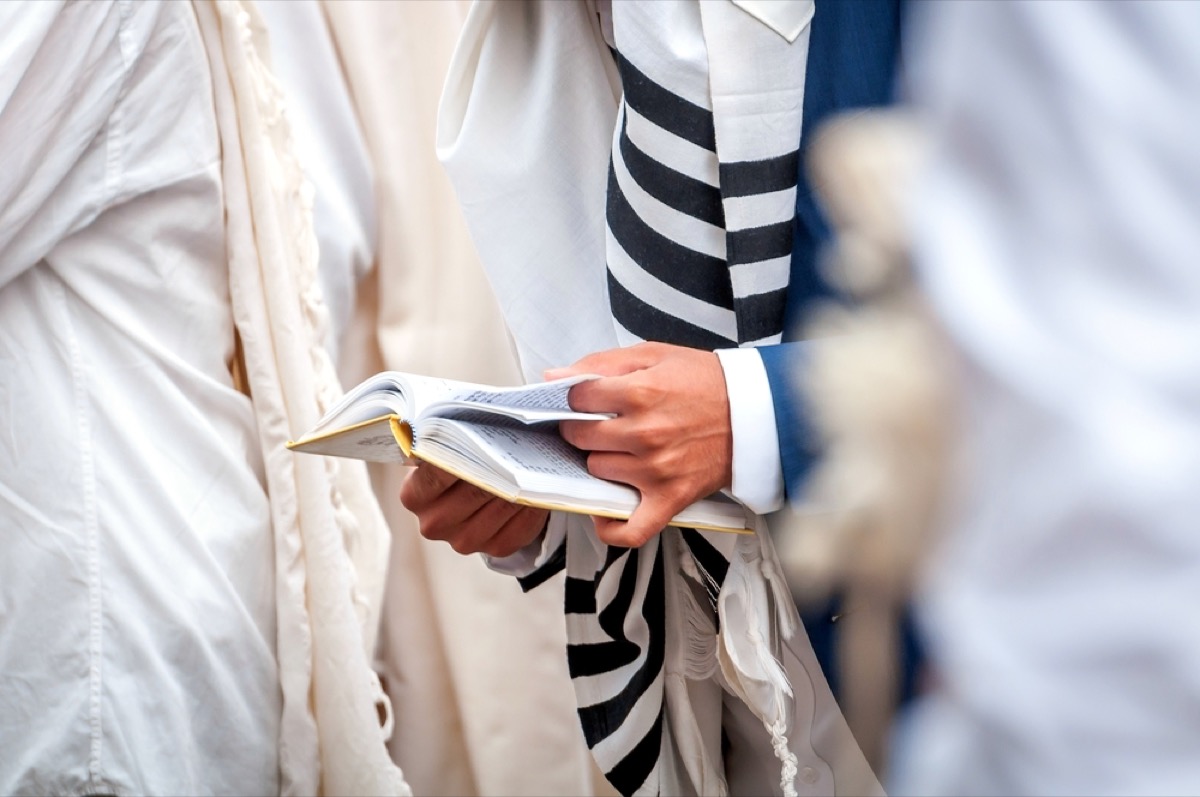
While many people believe that Rosh Hashanah is a celebratory occasion standing in contrast to the more solemn observance of Yom Kippur, that’s not entirely true. Hess describes the day’s tone as both “happy and fearful,” noting that “we are supposed to be confident that God will grant us another year of life, and at the same time, we recognize that in order to be granted another year of life, we need to make significant changes.”
13
People frequently throw bread into bodies of water to represent the casting away of their sins.
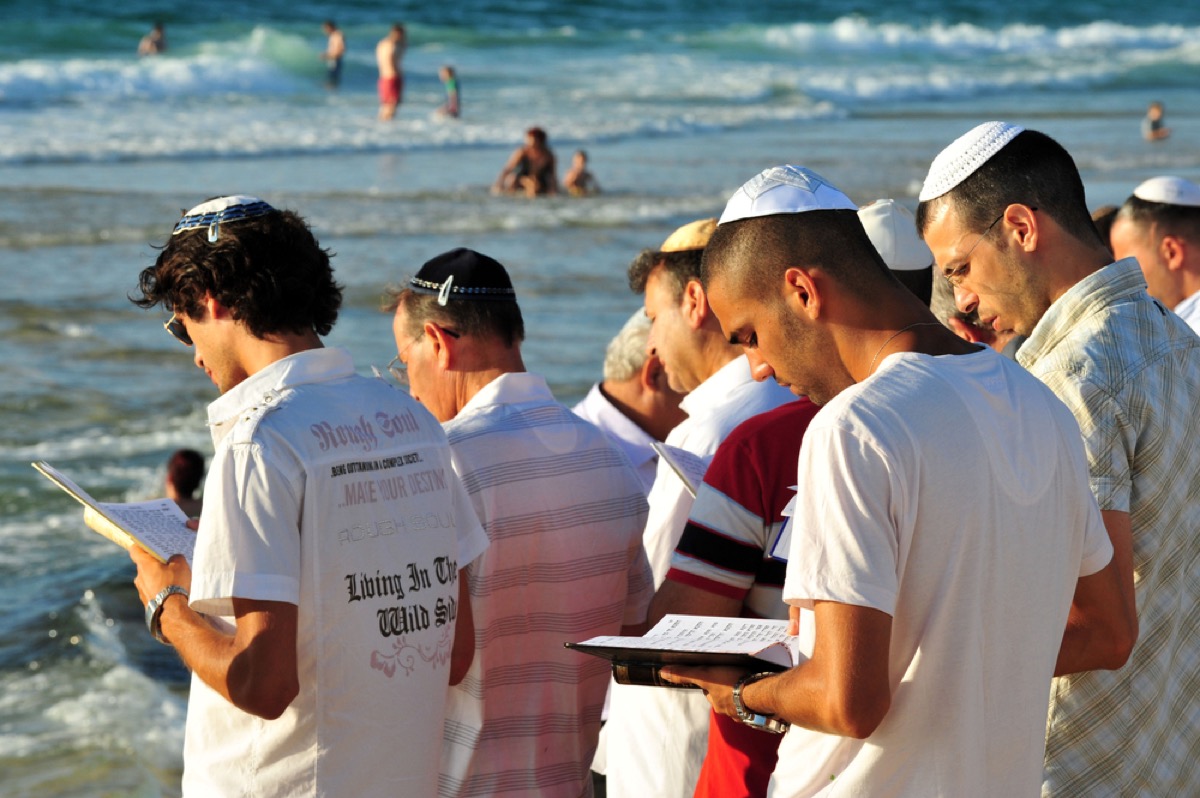
Known as tashlikh, this custom is typically performed on the first day of Rosh Hashanah to represent the casting off of a person’s sins as they head into the new year. In some communities, this is done with the contents of a person’s pockets instead.
14
It’s as much a time of self-improvement as Yom Kippur is.

Since the Book of Life—in which God writes down the names of those who are worthy of ascending to Heaven—is thought to be opened on Rosh Hashanah and sealed 10 days later on Yom Kippur, the beginning of the typical atonement period starts on Rosh Hashanah and ends on Yom Kippur. “We believe that God judges all of humanity on Rosh Hashanah,” explains Hess.
15
Rosh Hashanah often provides a catalyst for community activism.

Have you ever wondered why your Jewish friends and family members are always cleaning up the local park or volunteering at a soup kitchen in the early fall? It may have something to do with their rabbi’s Rosh Hashanah sermon. According to Hess, many rabbis suggest that their congregants make a commitment to their community during Rosh Hashanah, whether that means helping a neighbor carry their groceries home or embarking upon a larger-scale volunteer project.
16
The holiday celebrates the creation of humans on earth.

Rosh Hashanah isn’t just a celebration of the new year. It’s also a tribute to the creation of human life in Jewish tradition. The holiday “commemorates the birthday of the world, or more specifically human beings,” explains Rabbi Shlomo Slatkin, a licensed clinical professional counselor and the co-founder of The Marriage Restoration Project in New York, New Jersey, and Baltimore.
17
And some believe that the world is reborn each year on the holiday.

“The mystics explain that the world is recreated every year on Rosh Hashanah,” says Slatkin. As a time of rebirth, some religious Jews believe that “the energy that comes down into the world on Rosh Hashanah is a light that never previously existed,” he explains. And for more facts about the world’s holidays, here are 30 American Christmas Traditions Even You Didn’t Know About.
To discover more amazing secrets about living your best life, click here to follow us on Instagram!